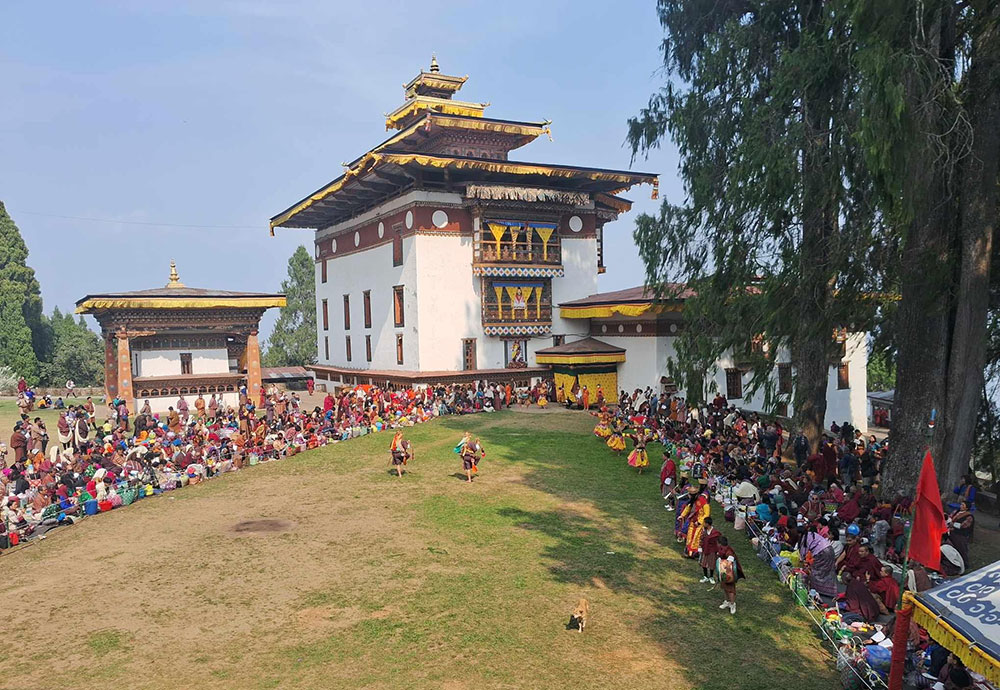Men marrying Talo girls were asked to beat the drum during the tshechu
Chencho Dema
Not long ago, Talo villagers in Punakha were surprised to re-experience an old tradition they had forgotten about when two men, Kinley from Bali in Punakha and Ugyen from Nahi in Wangdue, both married to women from Talo, met during the drumming ceremony at the Talo tshechu.
Their presence became the talk of the day during the Tshechu, sparking conversations and reflections on the significance of this long-forgotten tradition.
In Talo, a unique tradition once welcomed newcomers married to Talop women who hailed from outside the village. This tradition involved the newcomer joining the chipdrel procession during the Talo tshechu, accompanied by the rhythmic beating of drums as he circled the grounds where the tshechu is held. This ceremonial act served as an introduction, signifying his status as a newcomer to the tight-knit community of Talo.
However, over time, this tradition is fading according to locals.
An 82-year-old resident of Talo said, it used to be fun watching the new husbands beat the drum and it would be the talk of the village for days. “We were able to know about the new faces coming to the village,” she said.
Talop Namgay, a teacher at Logodama Primary School and a resident of Talo said, “This tradition serves as a visible marker signifying his status as a newcomer to the village and his marriage to a local woman.” However, Namgay had not witnessed since he was a child.
Tenzin, a 73-year-old former RBG soldier, recalled the presence of a large, heavy drum in the Talo monastery. “I don’t remember many details, but the tradition of drumming has been since the time of Zhabdrung,” he said.
Some Talo elders recall that in the past, newlywed husbands were required to circulate around the grounds of the Talo tshechu while drumming, and failure to do so resulted in fines.
Talo Gup Rinzin Wangchuck said that during the succession of Zhabdrung Thutrul Rinpochhe (Mind incarnation), his personal attendant (Chang-garp) relay news to Zhabdrung about a non-native of Talop marrying a woman in the village.
Zhabdrung, recognizing the importance of community unity, directed his personal attendant to identify the newcomers and ensured their participation in the drumming ritual during the Talo tshechu so that the community could become aware of their presence.
This customary practice served as a means for the residents of Talo to become acquainted with the presence of new individuals within their community.
It is an age-old tradition since Zhabdrung’s time, but over the time it has vanished and residents of Talo feel that it should be revived.
Talo gup said that with time, the age-old tradition has gradually faded.
However, a new custom has emerged during the tshechu. Instead of the drumming ritual for new husbands, young children now eagerly wait for the opportunity to beat the drum.
“In recognition of their participation, these young performers are compensated with daily allowance during the five-day tshechu,” he added.


